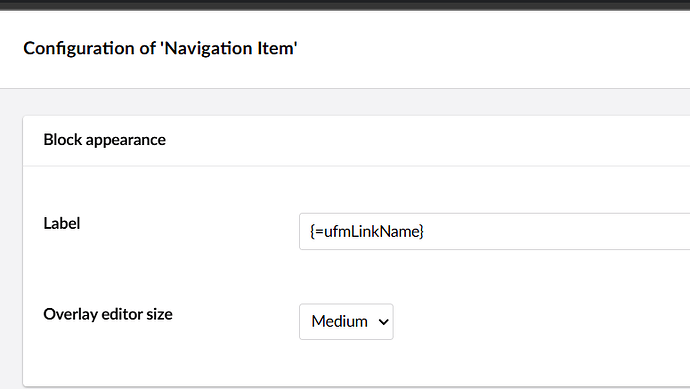In the new versions of Umbraco (up to version 17, if I remember correctly), you need to create a custom component to retrieve link names. Here’s an example of how I implemented it:
According to the documentation, you should add a vite.config file and configure it so that it generates a JavaScript file from the code you write—either in Lit (as I did) or using another framework. However, Lit is the officially recommended approach.
I created a folder named ufmCustomComponents, and inside it a subfolder ufmLinkName containing the fetchLinkName.ts file, which looks like this:
import { UMB_BLOCK_ENTRY_CONTEXT } from '@umbraco-cms/backoffice/block';
import { customElement, property } from '@umbraco-cms/backoffice/external/lit';
import { UmbUfmElementBase } from '@umbraco-cms/backoffice/ufm';
@customElement('ufm-link-name')
export class FetchUfmData extends UmbUfmElementBase {
@property()
alias?: string;
constructor() {
super();
this.consumeContext(UMB_BLOCK_ENTRY_CONTEXT, async (context) => {
const content = await context.contentValues();
this.observe(
content,
(value) => {
if (!this.alias || typeof value !== 'object') return;
const record = (value as Record<string, unknown>)[this.alias];
Array.isArray(record) && (this.value = record[0]?.name);
},
'observeValue',
);
});
}
}
export default FetchUfmData;
declare global {
interface HTMLElementTagNameMap {
'ufm-link-name': FetchUfmData;
}
}
Then I created ufmLinkName.ts to register the custom component logic:
import { UfmToken, UmbUfmComponentBase } from '@umbraco-cms/backoffice/ufm';
import './fetchLinkName.js';
export class UfmLinkNameComponent extends UmbUfmComponentBase {
render(token: UfmToken) {
if (!token) return;
return `<ufm-link-name alias="link"></ufm-link-name>`;
}
}
export { UfmLinkNameComponent as api };
Finally, outside of the ufmLinkName folder, I created a main.ts file to register the component:
import { umbExtensionsRegistry } from "@umbraco-cms/backoffice/extension-registry";
const manifest = {
type: "ufmComponent",
alias: "ProjectName.CustomUfmComponent",
name: "Project UFM Component",
api: () => import("./ufmLinkName/ufmLinkName"),
meta: {
marker: "=ufmLinkName",
},
};
umbExtensionsRegistry.register(manifest);
And here’s how I use it in Umbraco to retrieve the value:
